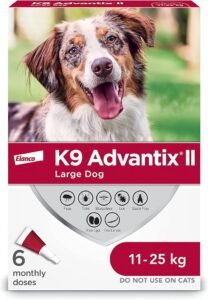Have you thought about using a dog stud service for your cherished pet?
The dog breeding field demands ethical practices because they are essential to the process. When selecting a professional dog stud service the knowledge of ethical breeding practices is essential to support responsible breeders and prevent involvement in harmful breeding methods.
The good news?
Equipped with proper knowledge and methods you can choose wisely to support your dog’s well-being alongside future puppies and the entire dog population.
Inside This Guide:
- Understanding Professional Dog Stud Services
- Why Ethics Matter in Dog Breeding
- Key Components of Ethical Stud Services
- Health Testing and Genetic Screening
- Finding a Reputable Stud Service
- Consider These Questions to Evaluate a Stud Service
- Red Flags to Watch For
- The Cost of Cutting Corners
Understanding Professional Dog Stud Services
A dog stud service operates by supplying male dogs to breed with female dogs for the purpose of producing puppies. A good stud service involves comprehensive services beyond simply producing puppies.
Professional stud services should offer:
- Access to male dogs who demonstrate both excellent genetic qualities and stable temperament characteristics
- Health testing documentation
- Breeding experience and knowledge
- Support throughout the breeding process
- Clear contracts and agreements
Many stud services maintain different ethical standards which can vary widely across the industry. Recognizing the difference between quality and unethical stud services remains essential.
Why Ethics Matter in Dog Breeding
The statistics of dog welfare in America reveal a concerning situation.
During 2023 around 6.5 million animals (3.3 million cats and 3.2 million dogs) came into animal shelters and rescue organizations throughout the United States. According to Shelter Animals Count data, dogs outnumbered cats in euthanasia numbers for the first time since 2016 as 359,000 dogs were euthanized compared to 330,000 cats in 2023.
The statistics stress the critical importance of ethical breeding practices. The decision to breed dogs carries significant consequences for three groups including parent dogs, their puppies and the future families who will adopt them.
The main goal of ethical breeding practices extends beyond creating adorable puppies. It’s about:
- Improving the overall health of dog breeds
- Reducing genetic diseases
- Ensuring good temperaments
- Ethical breeding helps stop the unnecessary accumulation of dogs in shelters.
- Supporting responsible ownership
Key Components of Ethical Stud Services
What makes a stud service ethical? Here are the core components:
1. Breed Preservation and Improvement
Ethical breeders focus on maintaining their breed through preservation and improvement efforts.
- Understanding breed standards
- Selecting complementary breeding pairs
- Eliminating genetic health issues
- Preserving positive temperament traits
2. Health Testing
This is non-negotiable. Ethical stud services perform extensive health evaluations which encompass:
- Hip and elbow evaluations
- Eye examinations
- Heart testing
- Breed-specific genetic tests
3. Temperament Assessment
Good genetics aren’t just physical. Ethical breeders assess:
- Behavioral stability
- Socialization levels
- Working abilities
- Family compatibility
4. Limited Breeding
Ethical stud owners don’t overuse their dogs. They:
- Limit the number of litters
- Allow rest between breeding
- Retire studs at appropriate ages
5. Screening Potential Matches
Reputable PA stud service providers screen females by:
- Verifying health testing
- Ensuring genetic compatibility
- Considering temperament matching
- Verifying the dam’s owner shares ethical practices
Health Testing and Genetic Screening
Ethical breeding practices prioritize health testing above all other aspects.
Around 90% of pet store puppies originate from puppy mills which results in these puppies having a 41.6% higher chance of developing health problems when compared to the general dog population. This alarming statistic reported by the Humane Society demonstrates why proper screening is critical.
Proper health screening includes:
Breed-Specific Testing
Different dog breeds exhibit distinct genetic health risks.
- German Shepherds: Hip dysplasia, degenerative myelopathy
- Labrador Retrievers: Exercise-induced collapse, retinal atrophy
- Bulldogs: Respiratory function, cardiac issues
OFA Certifications
The Orthopedic Foundation for Animals issues certifications for hip and elbow evaluations as well as cardiac assessments and thyroid function.
- Hip and elbow evaluations
- Cardiac assessments
- Thyroid function
DNA Testing
Breeders get accurate genetic disease carrier information through modern DNA testing which guides their mating decisions.
Regular Care
Responsible stud owners make sure that their dogs get routine health exams along with vaccinations and parasite control while providing proper nutrition.
Finding a Reputable Stud Service
Here is your guide to discovering a quality stud service whether in Pennsylvania or beyond.
1. Check Credentials
- Membership in breed clubs
- Participation in dog sports/shows
- Breeding program transparency
- References from clients
2. Visit in Person
- Assess living conditions
- Observe dog’s temperament
- Ask questions face-to-face
- Evaluate breeder’s knowledge
3. Review Documentation
- Health testing certificates
- Registration papers
- Breeding history
- Contracts and agreements
4. Consider Their Approach
- They ask about your female dog
- They require health testing
- They discuss genetic compatibility
- They offer breeding support
Before using a stud service ask yourself these essential questions:
Ensure you bring these prepared questions when meeting with a potential stud service.
- Could you provide documentation proving the health tests your stud has completed?
- How many litters has this stud produced?
- What is your breeding philosophy or goal?
- Which characteristics does your stud usually pass on to its offspring?
- What is your process for evaluating whether a female dog is suitable for breeding?
- Is there support available for female dogs during both their pregnancy and whelping process?
- What does your contract include?
- Is it possible to meet the past litters produced by this stud?
Red Flags to Watch For
Be wary of stud services that:
- Have no health testing documentation
- This stud service accepts breeding requests from any female without conducting prior screenings.
- Avoid stud services that maintain dogs which show signs of poor health or lack proper socialization skills.
- Cannot provide references from previous clients
- The breeding program focuses only on dogs with uncommon colors and extreme physical attributes
- Their main concern appears to be monetary rather than the well-being of the dogs.
- Have studs that are bred excessively
- They show a lack of fundamental knowledge about genetic and breed-specific matters.
There are at least 10,000 puppy mills in the United States but fewer than 3,000 of them receive USDA oversight. This concerning statistic from animal welfare organizations highlights why vigilance is necessary when selecting breeding partners for your dog.
The Cost of Cutting Corners
While unethical stud services may appear financially beneficial and convenient at first glance their eventual costs will prove catastrophic.
Financial Costs
- Puppies with genetic health problems require costly veterinary care.
- Treatment for preventable diseases
- Costs associated with behavioral problems
Emotional Costs
- Heartbreak of sick puppies
- Stress of dealing with temperament issues
- Guilt of contributing to breed problems
Societal Costs
- More dogs in shelters
- Perpetuation of genetic diseases
- Damage to breed reputation
Making Ethical Choices
Dog owners contemplating breeding have the power to make beneficial contributions to the canine community. Eighty percent of dogs available for purchase originate from breeders or pet stores but twenty percent come from shelters or rescue organizations. The data from animal welfare researchers indicates how breeding choices affect dog population trends.
By choosing ethical stud services, you’re:
- Supporting responsible breeding practices
- Helping improve breed health
- Reducing dogs with preventable issues
- Creating puppies that stay in forever homes
The Final Rundown
Searching for a dog stud service that maintains ethical standards requires time and research but yields worthwhile results. The decisions you make influence not only your dog and her puppies but also the future of the entire breed.
Responsible breeding means using informed choices to support the well-being of dogs rather than seeking financial gain. Selecting an ethical stud service makes you an active participant in the solution to canine breeding issues.
Make sure to get advice from your veterinarian as well as breed clubs and knowledgeable mentors before starting the breeding process. The choices we make now determine the future of our beloved dog breeds. Ethical prioritization helps secure healthy and well-behaved dogs for future generations to enjoy indefinitely.











